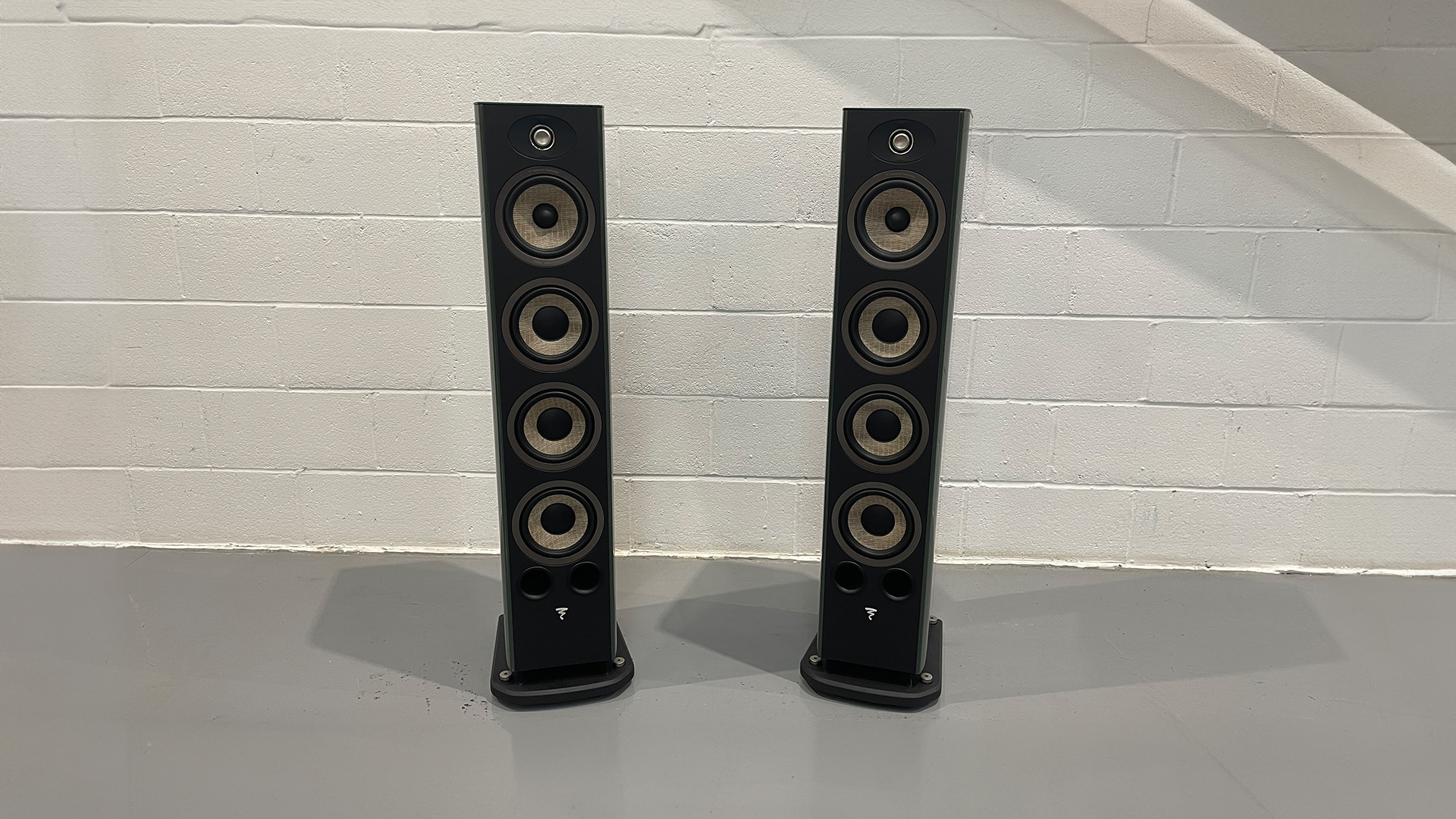
If speakers were judged simply on material content for the money then Focal’s Aria Evo X No3 floorstanding speakers would be considered a knockout. Just look at them; a tall yet elegantly styled cabinet packing a formidable array of drive units and enough in the way of high-tech engineering to make most of the competition look hopelessly under-equipped. The No3 is the middle of three floorstanding models in the French company’s new Aria Evo X range that also includes a small standmounter, centre, surround and subwoofer options.
Design
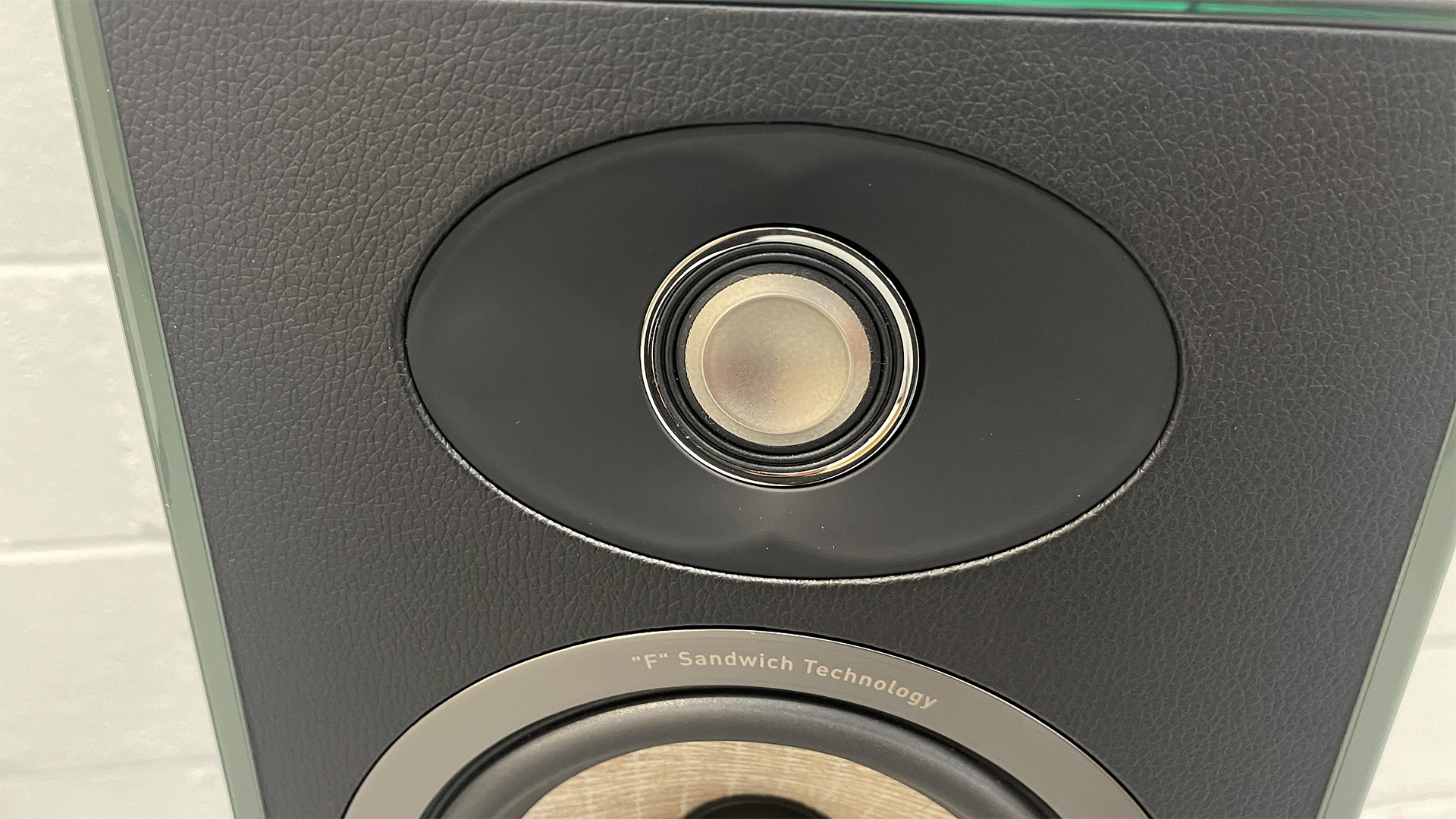
Our review subject is a three-way design with Focal’s favoured inverted metal tweeter mated to a 16.5cm Flax midrange and a trio of 16.5cm Flax bass drivers. The use of Flax in the driver diaphragms is interesting and unusual. Focal claims that the material offers a great balance of low weight, rigidity and self-damping, but also admits the distinctive appearance is a positive too. The reflex porting isn’t quite as straightforward as it appears initially either, with the two forward-firing ports on the front panel being tuned for impact, leaving a third, hidden, downward-facing port to deliver more in terms of low-end weight.
The engineers have taken a great deal of care over the shape of the urethane tweeter faceplate in a bid to optimise dispersion and stereo imaging. The tweeter itself uses a diaphragm made of aluminium and magnesium to, you’ve guessed it, combine rigidity with good damping. Elsewhere, the Flax midrange’s surround has strategically added mass to control and minimise unwanted movement. The aim? A more accurate sound.
Build & compatibility
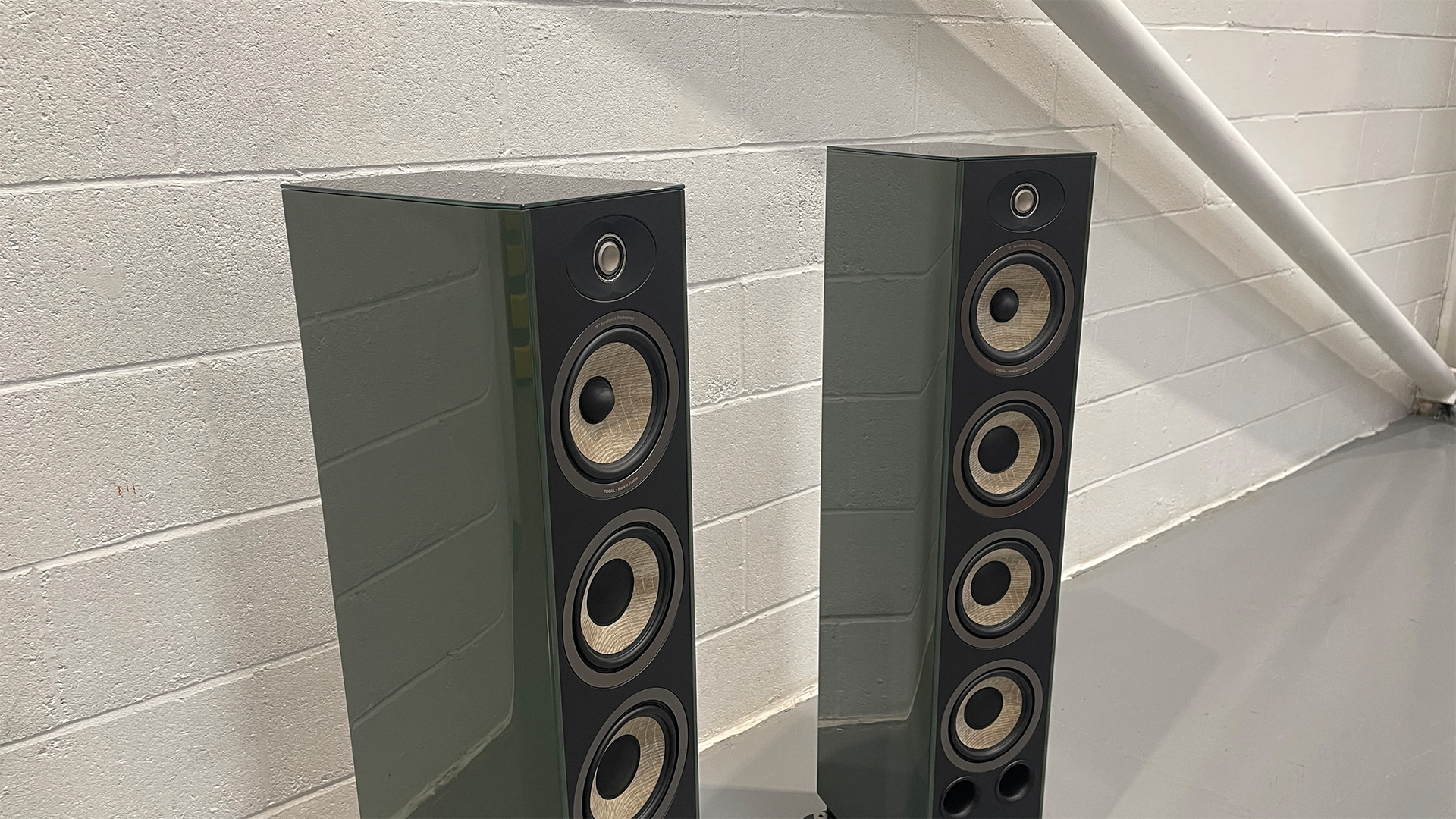
The Aria Evo X No3’s MDF cabinet is a classy affair. It has non-parallel sides to reduce the build-up of internal standing waves, which makes the cabinet quieter, and that is always a good thing. You will need to attach the aluminium plinth before you get started. It has to be bolted to the underside of the cabinet and is shaped to leave enough space for the downward-firing reflex port to work properly. The speaker’s floor spikes look suitably chunky, though we find the relative closeness to the cabinet makes any adjustments a little more awkward than they should be. Focal provides a small plastic tool to help, but it doesn’t totally fix the issue.
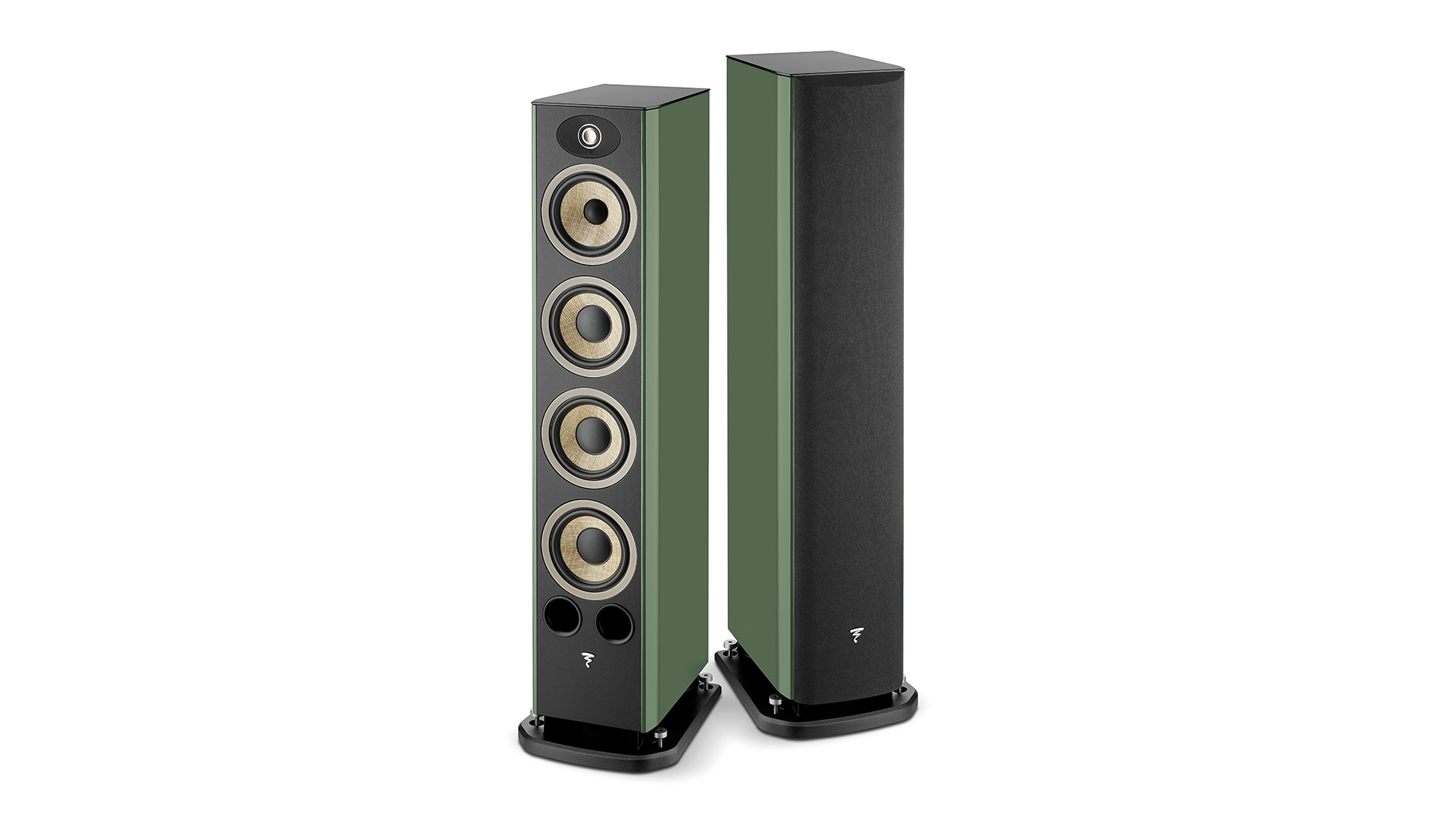
Type Floorstanders
Drive units 25mm Al/Mg tweeter, 16.5cm Flax midrange, 16.5mm x 3 Flax bass
Ported? Yes ( front x 2 and downward)
Bi-wire? No
Impedance 8 ohms (min 2.8 ohms)
Sensitivity 92dB
Dimensions (hwd) 115 x 29.4 x 37.1cm
Weight 29kg
Finishes x 2 (gloss black, walnut, moss green)
We are impressed with the quality of the finish on these speakers and the obvious care that Focal has taken over aesthetics. The moss green finish of our review sample looks unusual and elegant, particularly with the leather-look finish on the front baffle and glass on the top panel. The alternative gloss black and walnut cabinet finish options work well too.
At 115cm high these are tall towers. That height puts the tweeter axis quite high (around 109cm off the ground), so it makes sense to ensure that your favourite listening seat doesn’t place you too far below that height or the speaker’s presentation loses a little focus and balance.
When it comes to compatibility, these Focals are a bit of a mixed bag. Given their size and array of bass units, it is no surprise that they prefer to have plenty of space to breathe. We end up with them around a metre from the rear wall and well away from the sides. They work just fine in our 3 x 7 x 5m (hwd) test room, but only really gel when we are seated more than 2.5m away. We angle them in slightly towards the listening position to focus the stereo imaging. Once this is done they produce a broad, precise stereo image but still never quite manage to sound as out-of-the-box as some rivals we’ve heard.
The Aria Evo X No3 are sensitive at a claimed 92dB/W/m so should go loud even with a modest amount of power. But, despite a supposed nominal impedance of 8 ohms, these speakers dip to a minimum of 2.8 ohms, which makes them a pretty demanding electrical load. We think they will sound best with a robust amplifier capable of delivering a good amount of current. Our reference high-end Burmester 088/911 MkIII combination has no trouble doing that, of course, but a more price-compatible alternative such as the Nait XS3 from Focal’s sister brand Naim also drives them well.
Sound
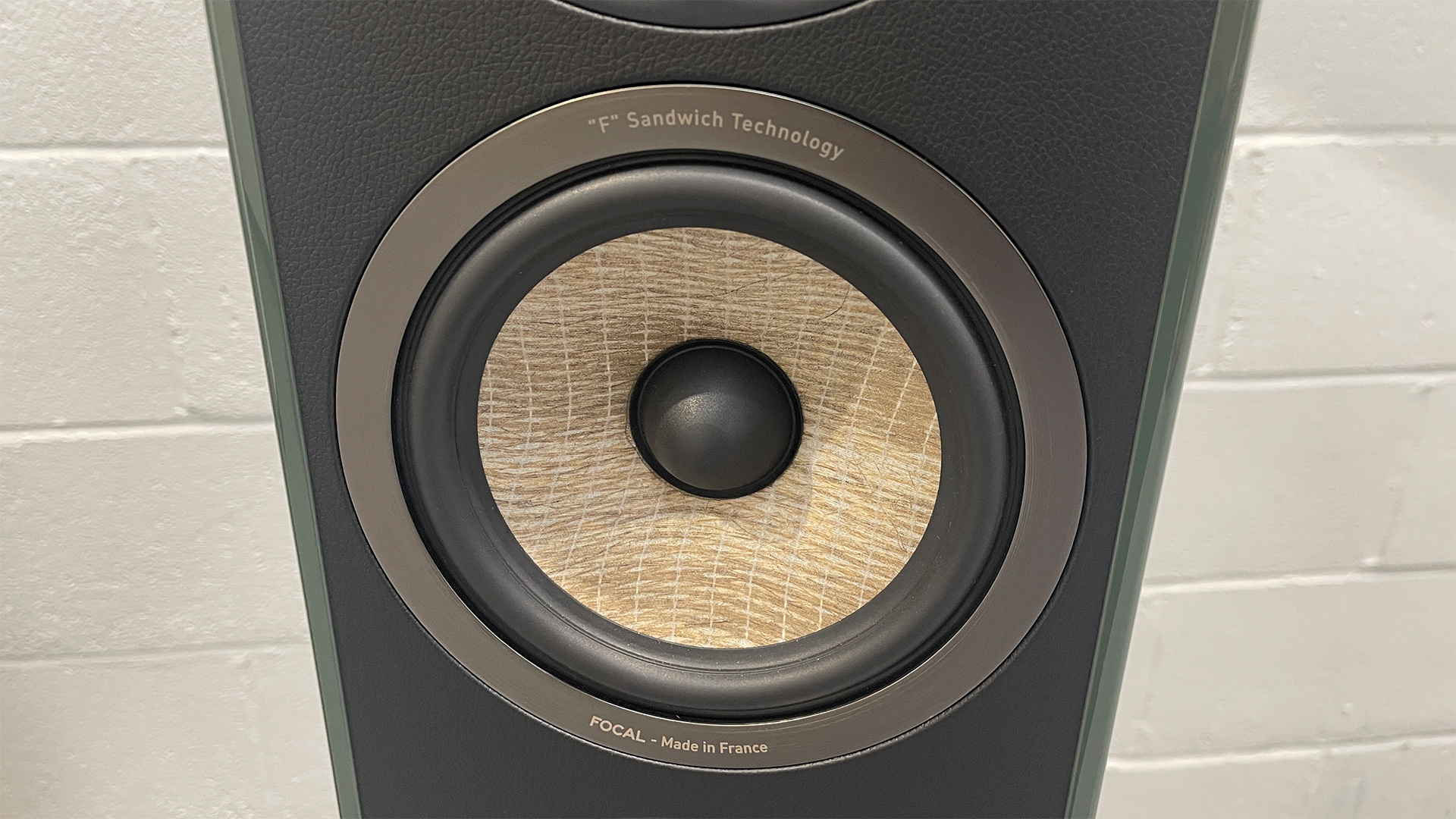
For the kind of person that values refinement, composure and unfussiness above all else, these could well be the floorstanders of choice at this level. As we play First Aid Kit’s Stay Gold set it is hard not to like the Focal’s balance between insight, bite and the gentle rounding of rough edges. Musically, we love this album but the recording is certainly on the lean and coarse side. The Aria’s smooth and full-bodied balance takes the edge off the negatives, giving the group’s vocals extra body and solidity. The speaker’s midrange performance is a highlight, displaying a fine degree of expression and articulation. That array of drive units may suggest a lack of cohesion but the engineers have done a fine job in delivering a seamless presentation, provided we sit far enough away.
But, it isn’t all plain sailing. Doubts start to creep in about the Aria Evo X No3’s ability to track rhythms properly. We listen to the title track Stay Gold and find that these towers don’t quite convey the song’s changing momentum with as much diligence as it deserves, leaving the music a little less invigorating as a result.
This character trait is even more apparent when we switch to Four Tet’s There is Love In You, where the album’s polyrhythms come across with a more relaxed manner than we’re hoping for. While we are being critical, the Focal’s deepest bass notes also lack the tautness and grip we hear higher up the frequency range.
But let’s not get into too much of a downer on these towers, as elsewhere there is much to admire. Detail levels are good, and through the midrange these are among the more charming and articulate floorstanders at the price. There is a natural warmth through this region that is most appealing.
Bizet’s Carmen Suite is a tough test, one that the Focal enjoys. Given their size and generous drive unit complement it will come as no surprise to find that they are capable of generating wide-ranging dynamic swings, high volume levels and a considerable amount of authority.
Admittedly, push the speakers very hard and their impressive composure cracks just a bit, allowing a slight degree of confusion to set in, but at domestically acceptable levels they do just fine. We love the sense of scale they render with music such as this, and the emphatic manner with which they communicate the sheer power of a full-blown orchestra. It is something that even class-leading alternatives such as the pricier Spendor A7 and the enthusiastic but still excellent ProAc Response DT8 struggle to match.
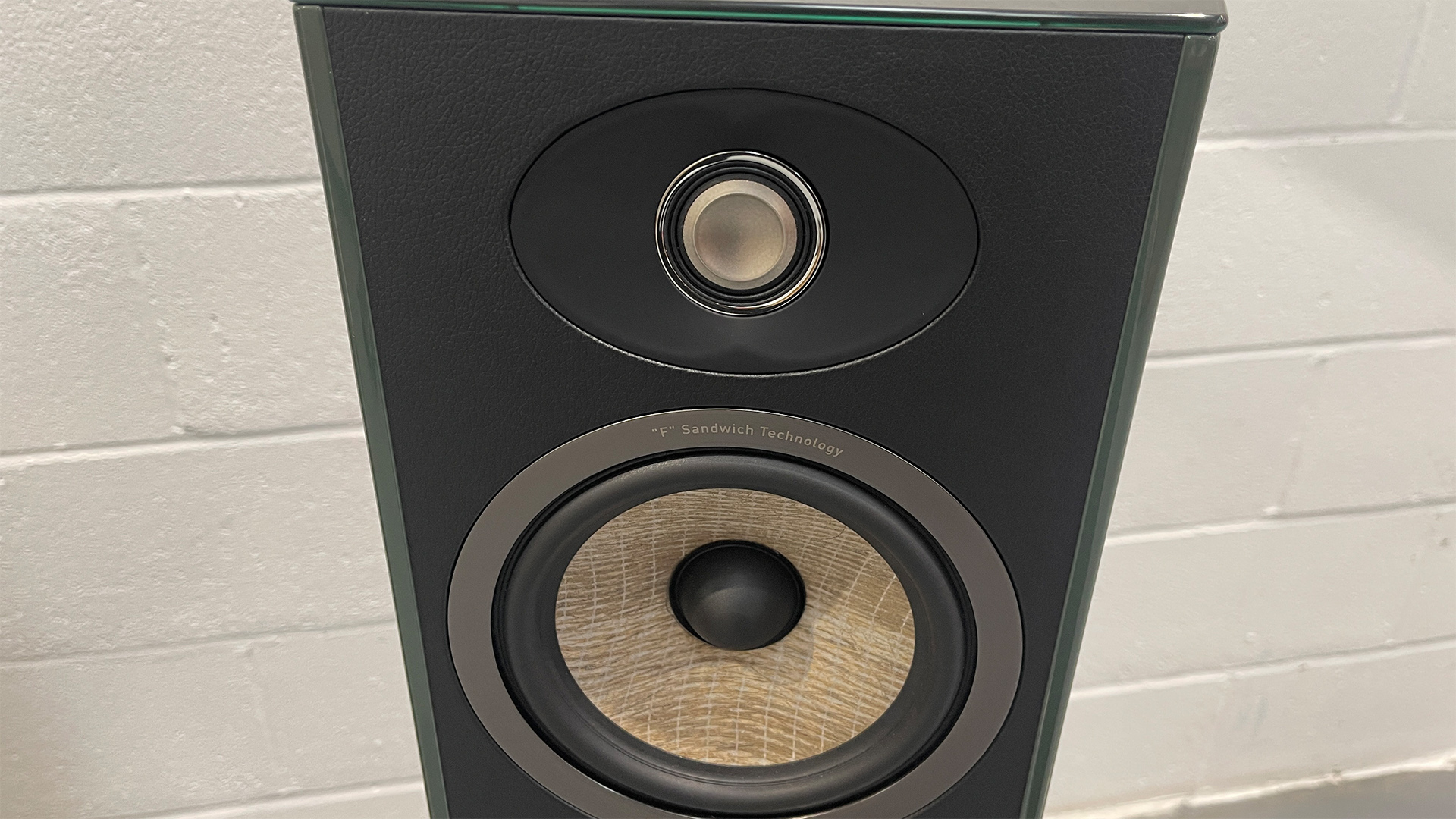
Verdict
There is much to like in Focal’s Aria Evo X No3. They are a pleasant and undemanding listen; one that is detailed but never ruthless in exposing a recording. If you are after unfussy but still capable floorstanders you could do a lot worse than to give these a listen. They might be exactly what you are looking for.
SCORES
- Sound 4
- Build 5
- Compatibility 4
MORE:
Read our review of the Spendor A7
Also consider the Wharfedale Aura 3
Read our ProAc Response DT8 review
Best speakers: budget to premium models tested by our expert reviewers







